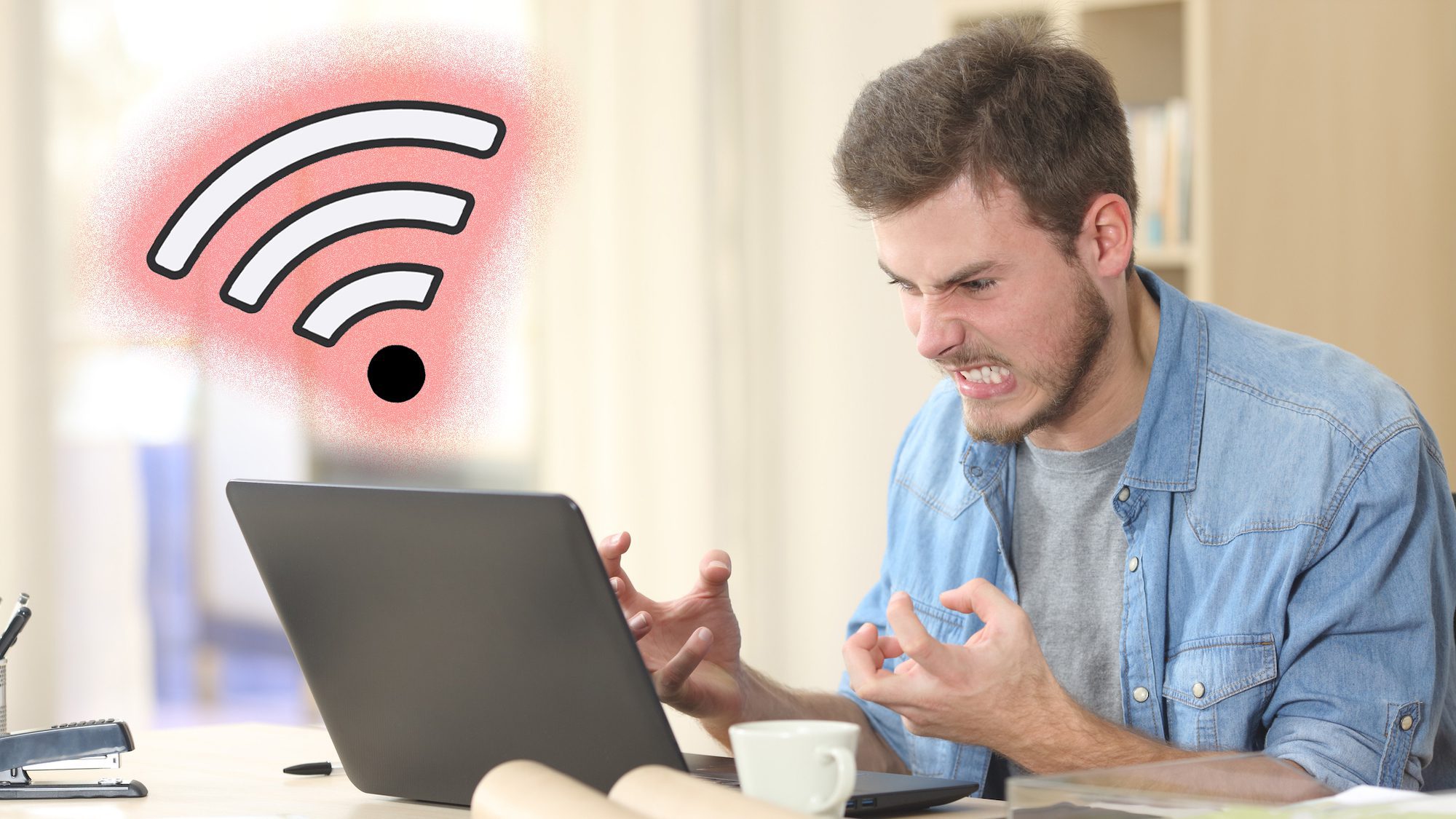
Getty Images, AntonioGuillem/Ankudi
Strong Wi-Fi is not just a perk; it’s an essential service these days, now that remote work and school are the norm. Unfortunately, many of us have learned there’s nothing more frustrating than experiencing internet problems just as it’s your turn to speak on a Zoom call.
Those glitches in your service, however, could mean that someone is piggybacking on your Wi-Fi. After all, in the worst-case scenario, your systems could be hacked, and someone could gain access to your personal information.
“The first thing everyone should do to safeguard their in-home Wi-Fi network is to password-protect it. A strong password will help keep the Wi-Fi door locked to hackers,” says Todd Smith, a spokesperson for Cox Communications in Atlanta.
Not everyone who piggybacks on Wi-Fi is a criminal; some may just not be able to afford high-speed internet for their own needs. But as unfortunate as that is, you need to make sure your network is not vulnerable to malicious attacks, and that you’re able to get the speedy internet service that you’re paying for.
Penalties for stealing Wi-Fi are still being developed, so it’s best to be proactive. In the meantime, here are some clues that a Wi-Fi squatter is in your midst.
1. Slow internet speed
If your previously blazing-fast internet has slowed to a snail’s pace, that may be a clue that something is amiss.
“If your internet speed has decreased, and you are starting to notice an increase in buffering, this could be a sign that someone is using your Wi-Fi,” says Paige Hanson, chief of cyber safety education at NortonLifeLock.
Noopur Davis, executive vice president and chief product and information security officer for Comcast, says that for peace of mind, “Users may want to periodically change their Wi-Fi passwords, which will help to keep unauthorized people or devices from joining.”
Always use a password that is not obvious, with a combination of letters, numbers, and symbols.
2. A sudden change in ads
These days, we’re all used to online ads that are strangely tailored to our tastes. If, instead, you’re suddenly seeing ads for products or services you’ve never heard of, it may be time to change your Wi-Fi password.
“Ads are typically tailored to you and your internet activity, so if you see a noticeable uptick in ads that don’t resemble your search or activity at all, this could be a sign of a Wi-Fi squatter,” says Hanson.
3. A higher-than-normal internet bill
Some internet plans allow you to pay a set rate each month, but with other plans, you pay based on how much data you use or when you exceed a certain amount of data in a month. If you have the latter and you notice a higher-than-normal bill, something may be amiss.
“When reviewing your bills, if you’re seeing an unusual spike in data usage and costs, this could mean someone else is using the Wi-Fi network,” says Hanson.
4. Spam notifications
Notice any spam notifications in your email inbox? If you’re sending emails and they’re getting flagged as spam, someone could be participating in illegal online activity on your Wi-Fi.
“If a Wi-Fi squatter is present, they could be causing your home IP address to get flagged by spam engines that filter into major email services and network security providers,” says Hanson. “This will create issues for you in the long run, as emails sent from home Wi-Fi networks could begin to get blocked and filtered into spam folders.”
5. New devices logged in
Regularly check your router by logging in to see all the devices connected to your network. Many network routers come with mobile apps that let you monitor and control your network from your phone. If someone you don’t recognize is on there, you’ve got a squatter.
To find out who is using your Wi-Fi, log in to your router and look to the “Client List” or “Attached Devices” tab.
“After identifying the squatters, change the password for your router,” says Hanson.
She recommends making sure to choose WPA2 as the password type, a kind of encryption used to secure Wi-Fi networks. Turn off the Wi-Fi Protected Setup, or WPS, as she says this makes it easier for people to crack your Wi-Fi password.
“Once you’ve changed your password, restart your router, and this will kick off the squatters,” she adds.
The post 5 Clues You May Have a Wi-Fi Squatter Causing Your Slow Internet appeared first on Real Estate News & Insights | realtor.com®.
No comments:
Post a Comment